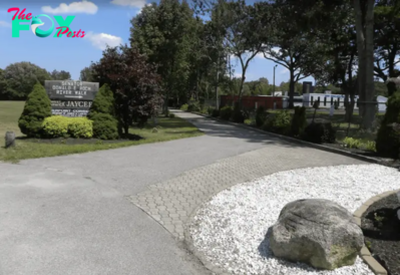Business
Commentary: Are Bike Lanes making streets unsafe? The DC experience – Nick DelleDonne
by Nick DelleDonne, DC Safe Streets Coalition, commentary
Photo: DC Safe Street Coalition FB page
Editor’s Note: As bike lanes have been controversial in their location and with safety concerns, RINewsToday often follows the experience of other cities and towns. This is the first in the Washington, DC experience. The DC Safe Streets Coalition meets weekly, and has for years, to determine the best path for bike lanes, traffic, and pedestrians to maneuver safely and together in the DC community. We believe Rhode Island, and specifically Providence, can learn from the experience of those who have come before in these experiences.
“The last words in the final presentation of the Columbia Road Bike Plan expressed the belief that removing and narrowing traffic lanes reduces crashes. District Department of Transportation (DDOT) planner Kevin Harrison said in a virtual meeting last week that studies show that they reduce speeding and crashes. He didn’t cite the study.
More important, we see with our own eyes, it is not true. The Bike Plan on 5th Street, NW, near Grant Circle shows traffic does not slow down and crashes go up. The plan for Grant Circle nearby would replace a traffic lane with a bike lane. Why would DDOT put a bike lane on traffic circles that are notoriously dangerous while side streets are available and safer?
The Advisory Neighborhood Commission representing Pennsylvania Ave., SE, on Capitol Hill where DDOT narrowed the street for bike lanes, recently endorsed bike lanes on Connecticut Ave., it said, because it is working on Pennsylvania Ave. They ignored the Commissioner who complained that the Pennsylvania Ave. Bike Plan forces vehicular traffic into side streets creating hazards.
By its own admission, regarding the K St. NW Bike Plan, east of Mt Vernon Square, where two traffic lanes were removed to make room for bike lanes, DDOT found the road cannot accommodate rush hour traffic.
DDOT is preparing a plan for South Dakota Ave., one of the most dangerous streets in the city – a plan to replace a traffic lane for a bike lane.
The first mission of DDOT must be to make sure that vehicular traffic can get through the city. If speeding is a problem, creating congestion cannot be the answer.
Bike lanes are unsafe on congested, commercial streets. Alternative bike routes are safer and available. If you want to see what’s wrong with putting a bike lane on a congested commercial street, visit 17th St. in Dupont Circle. It is the worst bike plan in the city where after four years, cargo is unloaded from trucks in the intersections. Laura McNeil, the DDOT planner who designed the route, says we have to share the street. No we don’t. Not like this. Not every street needs a bike lane.
We applaud the decision to stop the bike lanes on Connecticut Avenue. It is a sound decision based on safety considerations, and we commend the Mayor and DDOT Director Sharon Kershbaum for their courage in the face of an intimidating bike lobby.
When I was growing up and wanted to ride my bike downtown, I would map my route in advance, deliberately avoiding dangerous intersections and dangerous streets, so that I would get home safe. Today that is DDOT’s job – to map routes on side streets and slow streets where biking can be safe. Instead DDOT is directing our most vulnerable populations to the most dangerous routes – endangering seniors, pedestrians, the disabled, and bikers. I know seniors who have ridden their bikes around the city for decades without a problem, so we know it can be done. It need not cost millions. Built dedicated space for biking is unwarranted, particularly when you cannot convince people to hope on a bike.
DC is ranked the fifth among bike-friendly cities in the country. Isn’t that good enough? What is all this expense and turmoil for? Fourth place?
DC Safe Streets Coalition asks for two things – Town Halls and bike regulation. There is a bike faction in DC demanding the city make the most dangerous streets safe for biking. When there is competition for limited resources, what we need are regulations. DC cracked down on mopeds overnight. We need bike regulations. Certification, registration, licensing, insurance and helmets.
We see an overriding need to engage the community with Town Halls. People are not awakening to the dangers of bike lanes until they are installed.
Nick DelleDonne
DCSafeStreetsCoalition.org
___
What is the DC Safe Streets Coalition
DC neighbors have mounted a campaign to protest the reckless and dangerous Bike Plans and lane closures throughout the city. Protected Bike Lanes (PBLs) are not advisable through congested commercial streets where there are frequent interruptions in the bike lane. They pose hazards to pedestrians, seniors, drivers, business patrons and bike riders alike, just as the Mayor delayed plans for the massive K Street Transitway and the Connecticut Ave. Bike Plan, we ask for a pause in the network of bike plans and a comprehensive review, a study of alternative routes, ADA compliance, and community engagement in the form of many Town Halls to engage better with the community.
We encourage consideration of alternate cycle routes, alleys and small streets. Commercial stretches are inappropriate for protected bike lanes which set aside dedicated space for bikes in all seasons and all weather, even when they are not used. Closing traffic lanes causes congestion and will discourage business, entertainment and commercial activity in the city. We reject the false planning that creates an unworkable design, removing all legal parking spaces and then punishing patrons and residents for parking illegally. Funneling all traffic through one lane is a grave and reckless mistake.
We petition the Mayor, the Council and the District Department of Transportation (DDOT) to reject plans which will cripple the economic and social nerve center of our livable/walkable communities. We support efforts to bring neighborhoods together in the DC Safe Streets for All Coalition.
-

 Business2h ago
Business2h agoTim Latimer
-

 Business1d ago
Business1d agoCarbon offsets can help bring energy efficiency to low-income Americans − our Nashville data shows it could be a win for everyone
-

 Business1d ago
Business1d agoWorkplace diversity training programs are everywhere, but their effectiveness varies widely
-

 Business1d ago
Business1d agoFirm bosses urged to make use of Welsh language to revitalise rural economic system
-

 Business2d ago
Business2d agoDonor-advised funds are drawing a lot of assets besides cash – taking a bigger bite out of tax revenue than other kinds of charitable giving
-

 Business2d ago
Business2d agoClimbing Fans: A New Place to Boulder and More in Kingston
-

 Business3d ago
Business3d agoThe Anchovy Debate: Pizza Lovers’ Strong Feelings In Hudson Valley
-

 Business4d ago
Business4d agoFive Holidays Fairs & Markets In The Hudson Valley



























